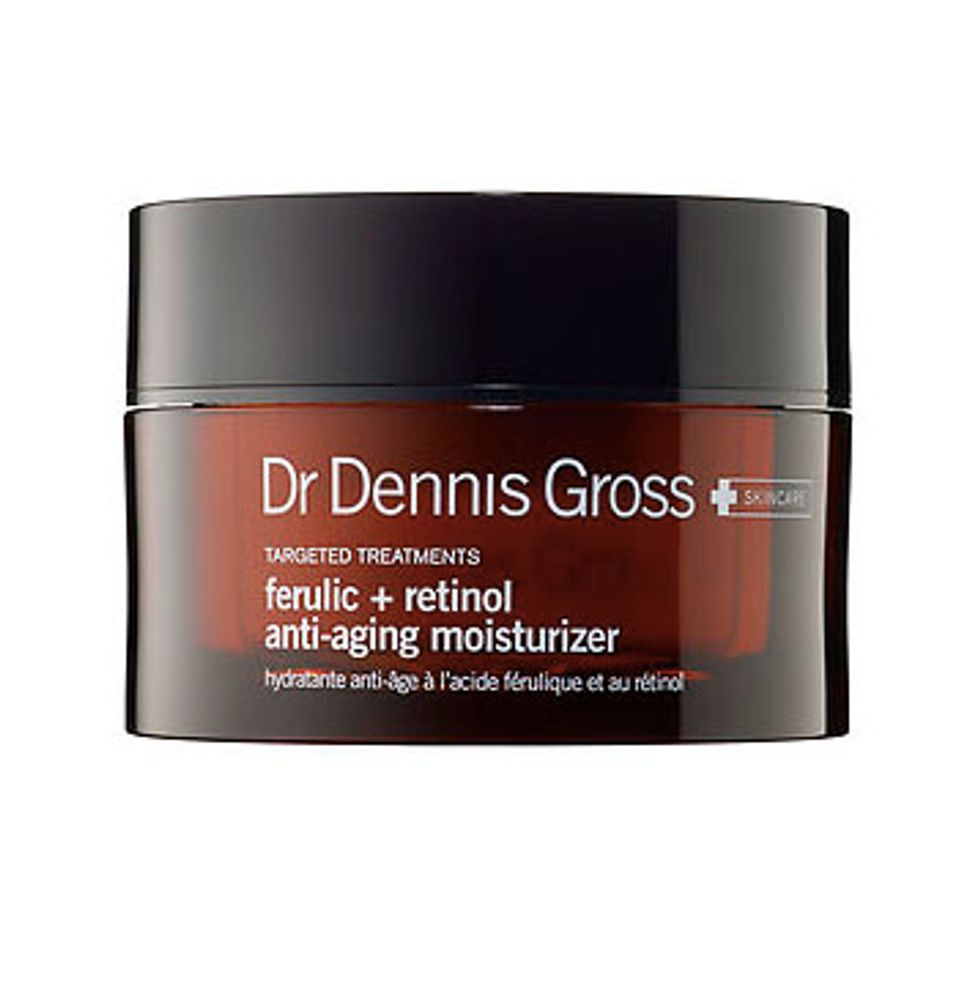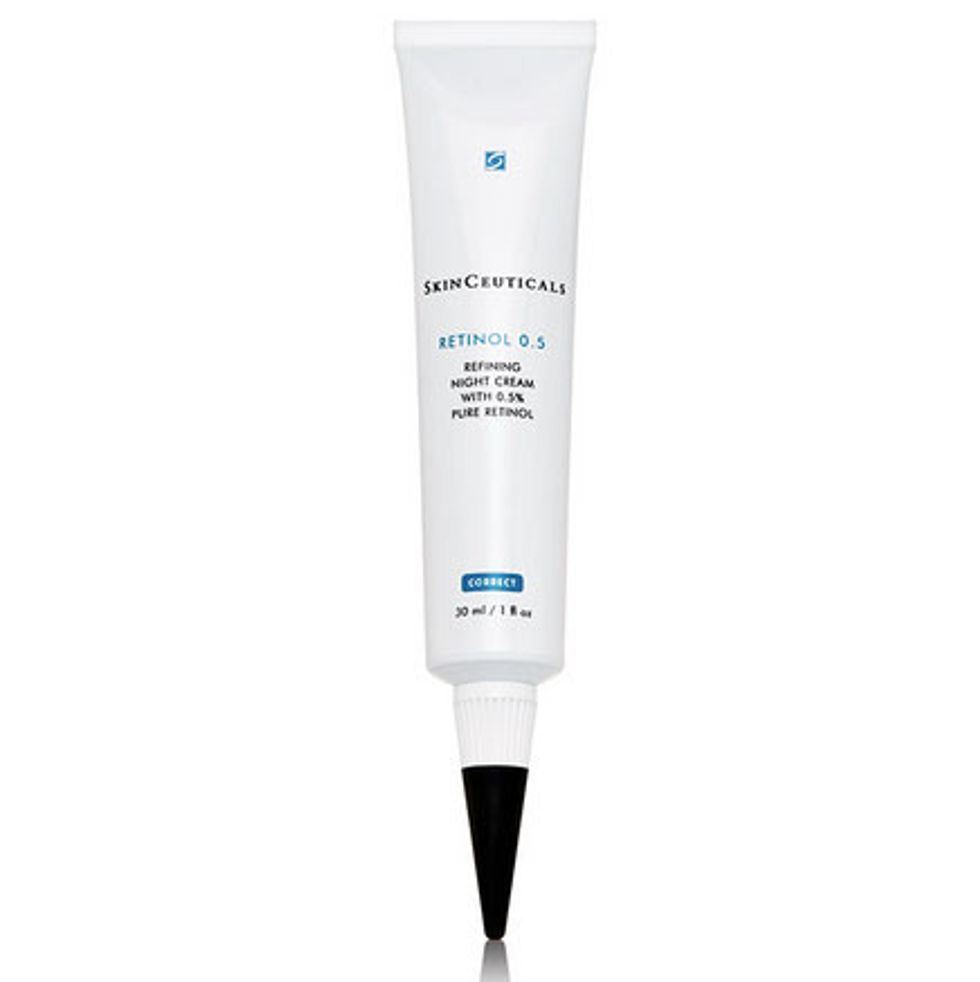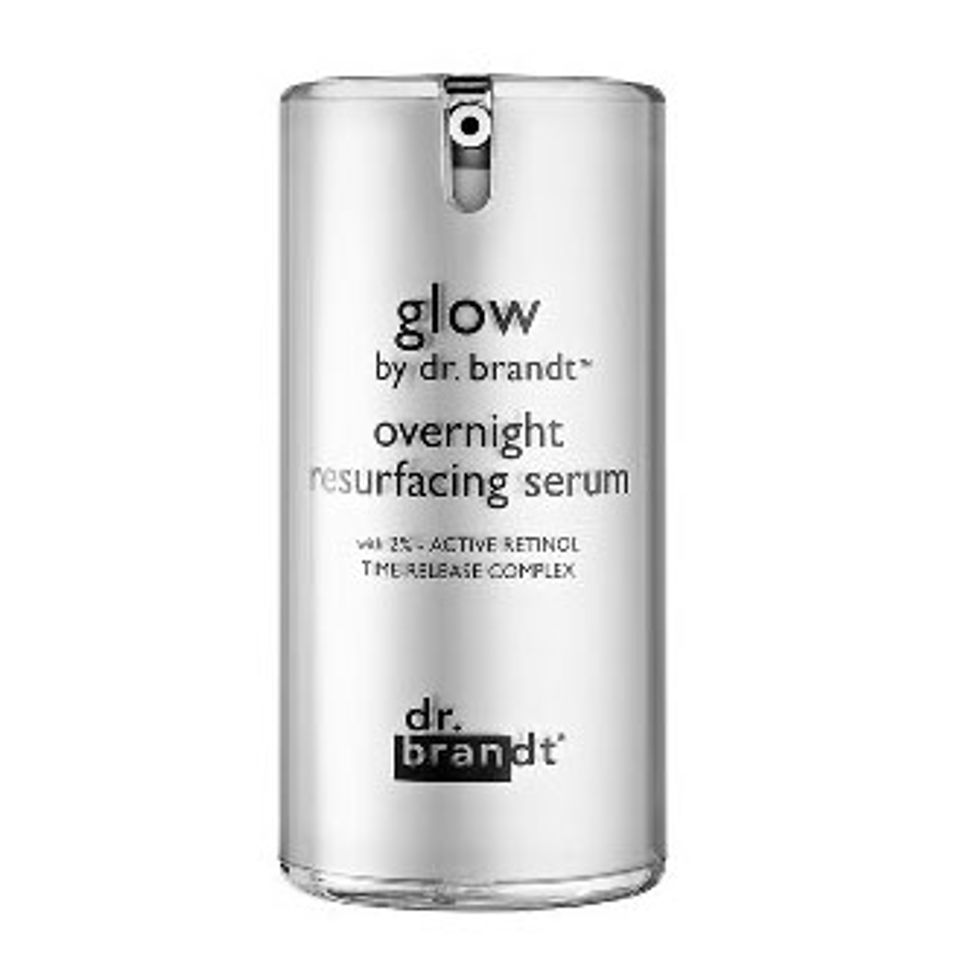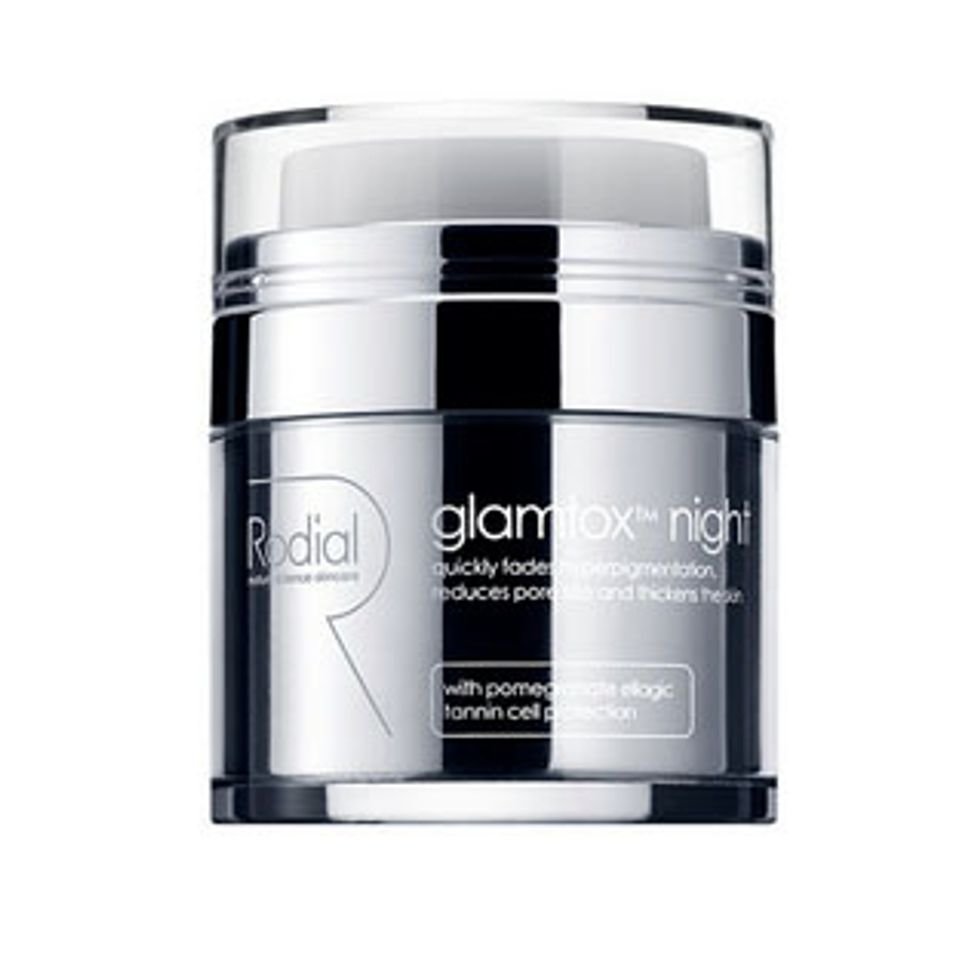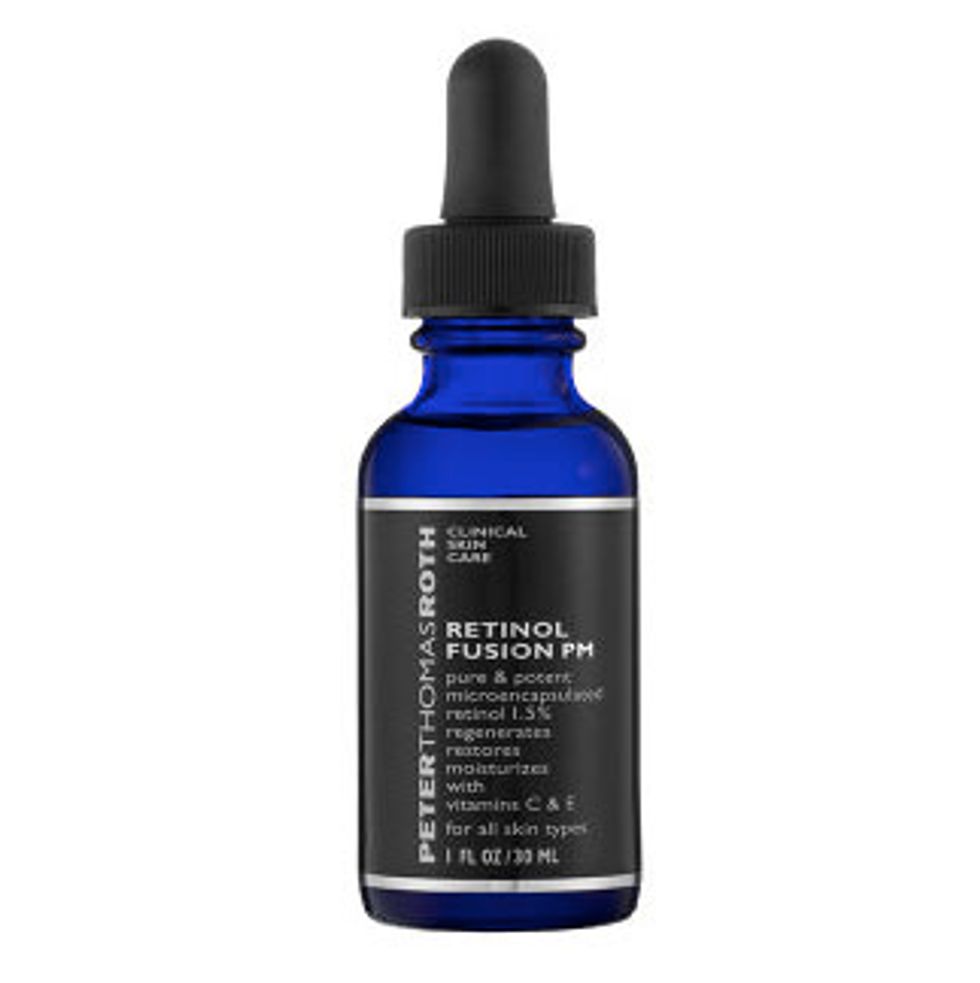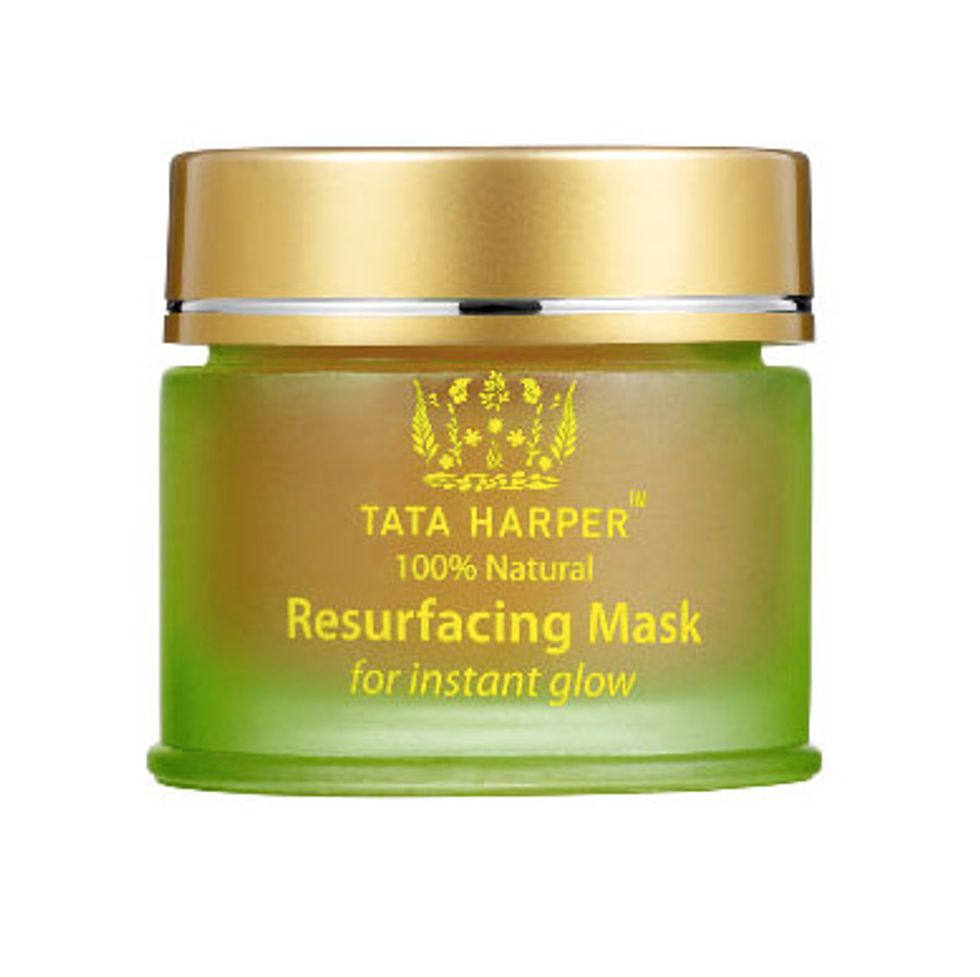What You Don't Know About Retinol
Gwyneth Paltrow, Chrissy Teigen & Emma Stone's go-to skincare gurus weigh in.

Any woman with a fashion magazine subscription—or, hell, any woman alive—has heard of retinol. The pure form of Vitamin A, retinol is used to address skin issues ranging from acne, to collagen, to aging, the literal answer to our (derma) prayers. But as Retinol becomes increasingly integrated with modern skincare, we have to ask: Does this vunder-product have a darkside?
Sure, it leaves skin young and glowing. It minimizes wrinkles, and can help bring blemishes to the surface. But many experts worry retinol actually thins the skin over time, increasing signs of aging in the long run.
You see, retinol works by removing the outer layer of our skin (epidermis.) It buffs dull, dying cells while encouraging the generation of new ones. And while its benefits are certainly impressive, the long term impact to our skin—and the drawbacks of repetitive “thinning”—remain unclear.
Here’s the scoop: Retinol works. But is it safe? And, if it is safe, how should we use it? To answer all these burning questions, we employed a dream team of six skincare experts to weigh in on the matter. From Gwyneth Paltrow’s go-to guru (Tata Harper), to Chrissy Teigen’s facialist (Shani Darden), we’ve got the definitive dirt on retinol.
Tata Harper
Founder, Tata Harper Skincare
Fans: Gwyneth Paltrow and Lake Bell
“Thin skin looks beautiful — and I have nothing against it — but I firmly believe women should find a long term antiaging strategy that strengthens instead of thins. You can still keep skin fresh without compromising its strength by using gentle hydroxy acids and daily exfoliation instead of retinol. Because things like retinol will make your skin will look older and less healthy over time. Replace them with products like enzymes, clays, natural Vitamin C and beta hydroxy acids — especially salicylic acid from Willow Bark. These products more gentle than retinol, but are still very effective.”
Shani Darden
Celebrity Facialist; Founder, Resurface Skincare
Fans: Emma Stone, Chrissy Teigen, Rosie Huntington-Whiteley
“I think retinoids are misunderstood. Prescription strength retinoids do thin the skin and cause sensitivities like peeling and redness. That’s why I created my own retinol — to build a product that gives the results of a prescription strength retinol without the drawbacks… Because retinol really is one of the best anti aging products available. You just can’t use one that’s too strong for your skin. Find a gentle retinol, and then introduce it to your skin slowly — no more one or two times per week. Add one day each week, until you’re using it as often as your skin can tolerate.”
Carrie Lindsey
Esthetician, Shen Beauty
Fans: Jemima Kirke, Emily Mortimer
“At Shen, we recommend finding an exfoliant that’s gentle enough to use three times per week without thinning the skin. The strongest product we carry is Skinceuticals 0.5% Retinol, and it would definitely thin the skin if used daily over a long period of time. The issue is that when the skin’s natural barrier is thinned, it becomes difficult to fight off bacteria or infection. It also decreases your tolerance to sun, and makes skin more wrinkles. Just think of it this way: Thick, oily skin types age beautifully, remaining plump and relatively wrinkle free. If you’re going to use retinol, it needs to be in a gentle, infrequent enough way.”
Adina Grigore
Founder, S.W. Basics
Fans: Sophia Bush, Hayley Williams
“I fall somewhere in the middle of the retinol spectrum. I don’t use it — because my skin is too sensitive — but I also don’t forbid clients from using it. Retinol delivers... it’s high performance. I would just recommend giving your skin a break every once in awhile. Don’t over rely on retinol. Work in natural forms of Vitamin A — like a carrot, squash or cantaloupe mask — that aren’t as harsh on your skin. Sure, they’re not as active as retinol. But they won’t cause the same thinning issues.”
Dr. Dennis Gross
Founder, Dr. Gross
Fans: Chrissy Teigen, Selena Gomez
“Retinoids do not thin the skin over time… otherwise they would have no purpose. They do, however, increase cell turnover, promoting even texture, firming skin and minimizing wrinkles. In fact, a good retinoid will actually thicken the skin by promoting active collagen production. Just be sure to use it at night, as retinol can increase sensitivity to light and sun.”
Maria Hatzistefanis
Founder, Rodial Skincare
Fans: Kylie Jenner, Hanneli Mustaparta
“I’m a big fan of retinol treatments. They remove dead skin cells and encourage the formation of young cells. The key, however, is dose. You want retinol and AHA to encourage cell turnaround, not to shed more than you’re generating. Think of it this way: resurface, and don’t thin, the skin.”
***
So what’s the takeaway? Retinol is not quite black and white. It’s safe to use, but only with a gentle formulation that’s worked into your routine on a semi-regular basis. Our advice is to consult a dermatologist or esthetician who can design your retinol regimen. Oh, and also? Be honest with yourself. Pay close attention to changes in your skin, especially when introducing new products. Now go forth and exfoliate!

